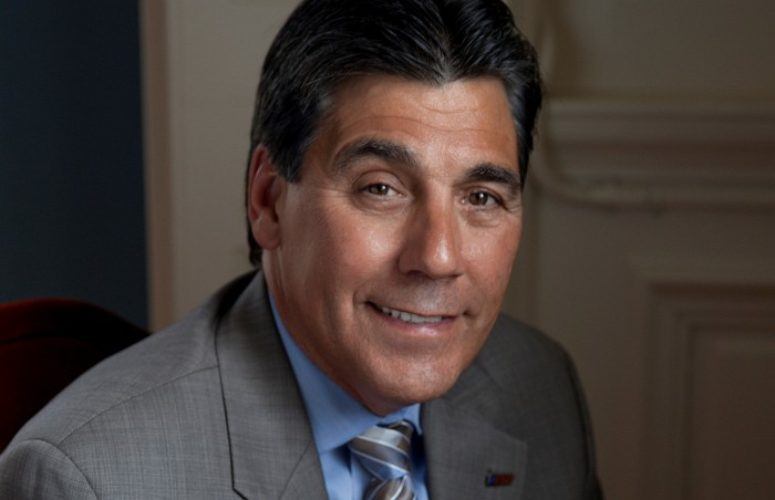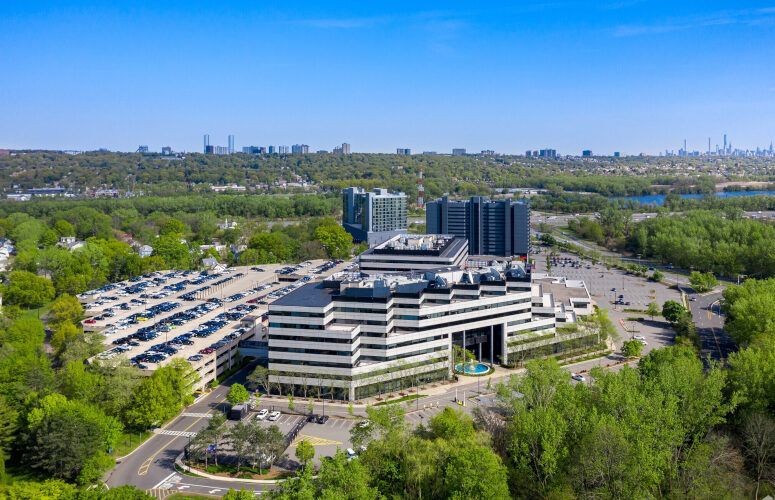
Fairleigh Dickinson University Selects its Next President
On Jun 29, 2015The Board of Trustees of Fairleigh Dickinson University (FDU) has announced that Dr. Christopher A. Capuano, currently the university provost and senior vice president for academic affairs and the university’s second ranking officer, has been appointed the university’s next president. Capuano, 57, will serve as president-elect during the 2015-2016 academic year and will become the university’s eighth president on July 1, 2016, when current President Sheldon Drucker will retire.
Board Chair Patrick Zenner said that “the university is fortunate to have such a strong candidate for the presidency within its ranks, someone who has served the university well as a faculty member and administrator, has been a passionate and determined leader of the faculty in his current role as chief academic officer, and has worked closely with President Drucker, the board and the university community on numerous initiatives of significant importance to the university, including its new strategic plan.” Zenner added “Dr. Capuano has been a tireless and effective advocate for FDU in his current and former positions at the university, and the board has complete confidence in his ability to lead the university as its next chief executive officer.”
Capuano stated that he is “deeply honored and appreciative of the board’s decision to appoint him the next president of such an outstanding university, a university with an extraordinary mission, history and increasing global reach.” In accepting this appointment, he said that he is “most excited about the opportunity to lead a very talented and deeply committed faculty, staff and student body, all of which are necessary to propel the university to an even greater level of distinction and enable FDU to better serve its communities.”
As university provost, Capuano has provided important decision making in identifying and appointing a strong leadership team in the School of Pharmacy, which has resulted in consistent enrollment growth and “candidate status” with the Accreditation Council for Pharmacy Education. In addition, he was instrumental in recently securing a large gift to support the university’s new Daniel and Martina Lewis Center for Healthcare Innovation and Technology. Moreover, he was the driving force in developing the university’s 2014-2019 strategic plan, working with President Drucker, the Board and faculty and staff across the university, including at the university’s two international campuses in Canada and England.
Further, working closely with the vice provost for academic and international affairs, the associate provost for educational resources and assessment, the college deans and the Academic Policies and Research Committee of the Faculty Senate, Capuano has provided the leadership for much-needed changes to the university’s nationally recognized University Core program, the adoption of the Individual Development and Educational Assessment (IDEA) system for both instructor and course assessment and development, and important changes to the requirements for completion of Bachelor of Arts and Bachelor of Science degrees, including the establishment of uniform general-education requirements across similar programs at the university which a university-wide faculty task force was recently charged by Capuano to study and make recommendations concerning.
In his former position as vice provost for international affairs, Capuano provided oversight of the University’s Office of Global Partnerships and worked closely with the university’s Office of Global Learning to facilitate study abroad and other international initiatives. Moreover, he was the driving force in developing the University’s new campus in Vancouver, British Columbia, Canada, providing oversight of academic and non-academic responsibilities, including accreditation of the campus and all its programs, the hiring of faculty and staff, developing and monitoring the campus’s budget, and ensuring that the campus met the objectives outlined in its strategic plan. In addition, he also served as Vancouver Campus provost for a year during a critical transition period.
As director of the School of Psychology for nearly 15 years and a former doctoral faculty member in the university’s Ph.D. Program in Clinical Psychology and Psy.D. Program in School Psychology — the second of which he helped to develop — he provided important leadership in developing the school into one of the largest and more prestigious schools at the University. His many accomplishments in this position included establishment of the postdoctoral certificate program in clinical psychopharmacology and its transition to a postdoctoral Master of Science degree program. He was instrumental in developing the program’s initial curriculum, including providing expert lectures in several courses — a program that has earned national recognition and is currently only one of just a few programs recognized by the American Psychological Association for postdoctoral training in clinical psychopharmacology.
As a former faculty member and biopsychologist by training, Capuano introduced and taught key compulsory courses in both doctoral programs in the School of Psychology — Biological Bases of Behavior and Psychopharmacology in the Ph.D. Program in Clinical Psychology and Child and Adolescent Psychopharmacology in the Psy.D. Program in School Psychology. His research included the design, implementation and supervision of experiments in neuropsychopharmacology and health psychology, from planning and evaluating new research to working on the development of compounds and behavioral interventions for clinical use. Moreover, he supervised numerous doctoral dissertations as well as master’s theses and has published numerous abstracts and research articles with colleagues and former students in scholarly journals such as Developmental Brain Research; Pharmacology, Biochemistry and Behavior; Annals of Behavioral Medicine; and Obesity Research. He also is a research fellow with The Obesity Society (formerly the North American Association for the Study of Obesity).
Capuano earned his Ph.D. in biopsychology and two master’s degrees from the Graduate and University Center of the City University of New York, as well as his B.S. in biological sciences from Purdue University.
Related Articles:






